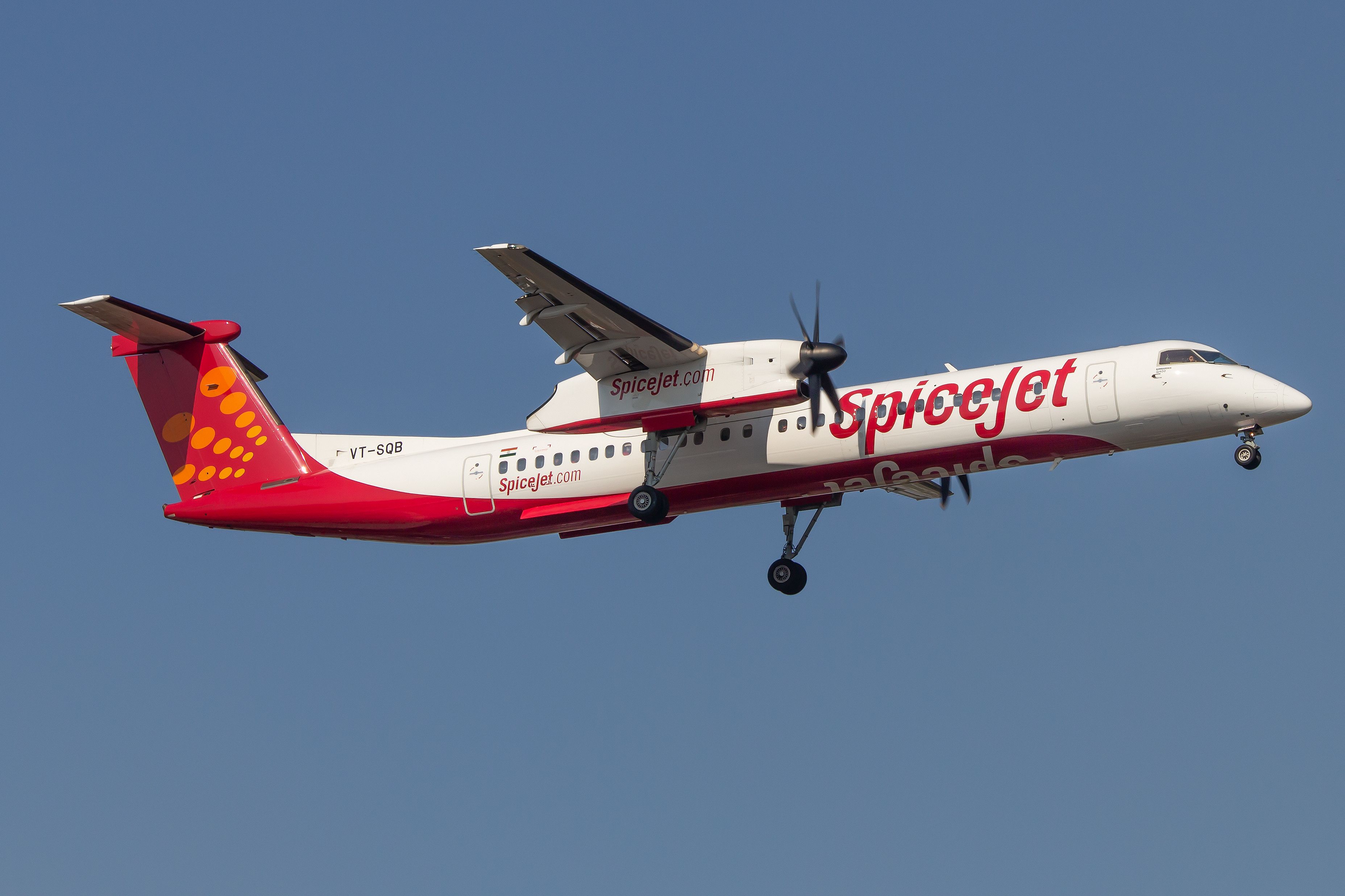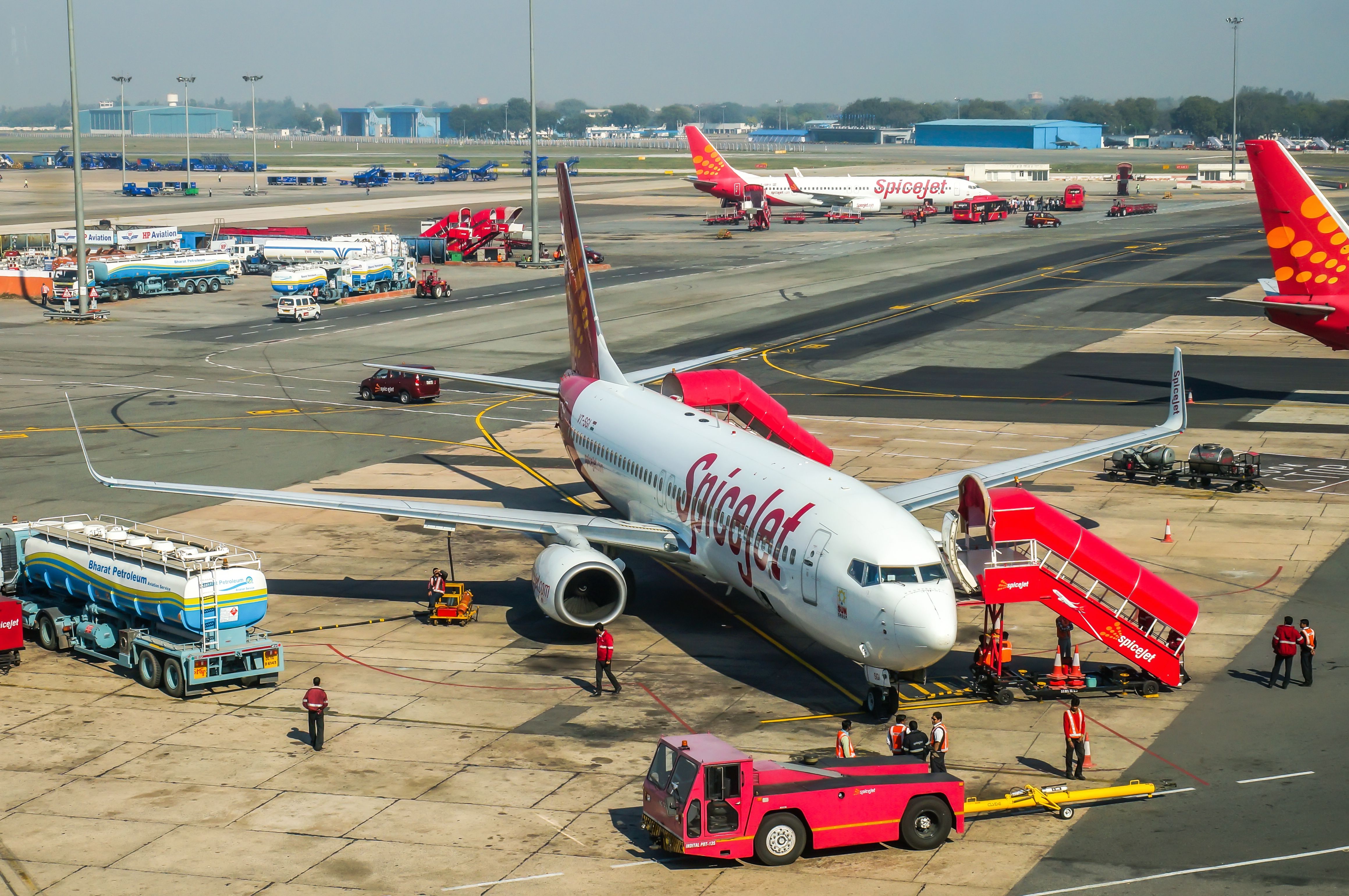India’s SpiceJet will soon welcome nearly 30 aircraft back to its fleet as it seeks to beef up its operation. The move comes after the airline’s competitor, Go First, recently filed for bankruptcy, suspending all flights temporarily.
SpiceJet reportedly borrowed more than $45 million to fund the aircraft returning to service while airfares on some routes that Go First also flew has increased. Spicejet’s chairman and managing director said airfare will eventually return to normal after capacity adjustments.
Nearly $50 million
According to ch-aviation, Spicejet has secured INR4 billion rupees ($49 million) from India’s Emergency Credit Line Guarantee Scheme (ECLGS). The money, in addition to cash accruals, will support 25 aircraft being revived into service. Among the planes currently parked are some Boeing 737 family aircraft, while the majority are Bombardier Dash-8-Q400 regional aircraft.
Photo: BoeingMan777/Shutterstock
Ajay Singh, the carrier’s Chairman and Managing Director, said in a statement that SpiceJet has been working “meticulously” to return the parked planes to its fleet.
“(The) majority of the ECLGS funding received by the airline would be utilized for the same.”
Singh also mentioned that the ECLGS funding will help the airline capitalize and be prepared for the upcoming summer travel demand. The ECLGS is an initiative that gives businesses in India financial assistance after being impacted by the COVID-19 pandemic. Airlines can receive ECLGS loans totaling INR15 billion, equal to more than $180 million.
Go First’s failure
SpiceJet reportedly announced that it would bring back the 25 aircraft one day after Go First declared bankruptcy and canceled its flights for three days. According to NDTV, airfare prices have increased in some sectors Go First was flying, but Singh said the increase is temporary.
“It happens when there is a mismatch of supply and demand affairs. Prices will go up but it settles quite nicely. It has been seen the last time when an airline went down, there was a temporary period of mismatch and then, capacity came into the system and fares were back to normal,” he said in a statement obtained by NDTV.
Photo: Media_works/Shutterstock
Singh said that he hopes Go First can relaunch its operations.
“It’s of course extremely unfortunate, but hopefully Go Air can use this opportunity to resolve their issues and the sector at large can use this opportunity to resolve their issues and emerge even stronger,” the airline official said.
Increasing frequency
SpiceJet’s revival of some of its aircraft does not appear to be directly related to Go First’s failure, however. Singh explained that the pandemic resulted in the airline grounding many of its planes, but since demand has returned, the carrier has determined that it is time to bring the aircraft back.
“And, there are so many small stations that have been left unconnected or less connected as a consequence of the problems that occurred,” he said. “We hope to bring back all those flights and increase frequency to several distributions,” he added.
According to ch-aviation, SpiceJet has 34 aircraft currently parked. Two 737-700s, one 737-700 converted freighter, two 737 MAX 8’s, seven 737-800s, two 737-900ERs, and twenty Dash-8-Q400 regional aircraft. The airline has not shared when or which aircraft will return to service. It is also unclear which portion of the carrier’s expenses to return the aircraft would be funded by ECLGS and what would be supported by the cash accruals.
Source: ch-aviation, NDTV





